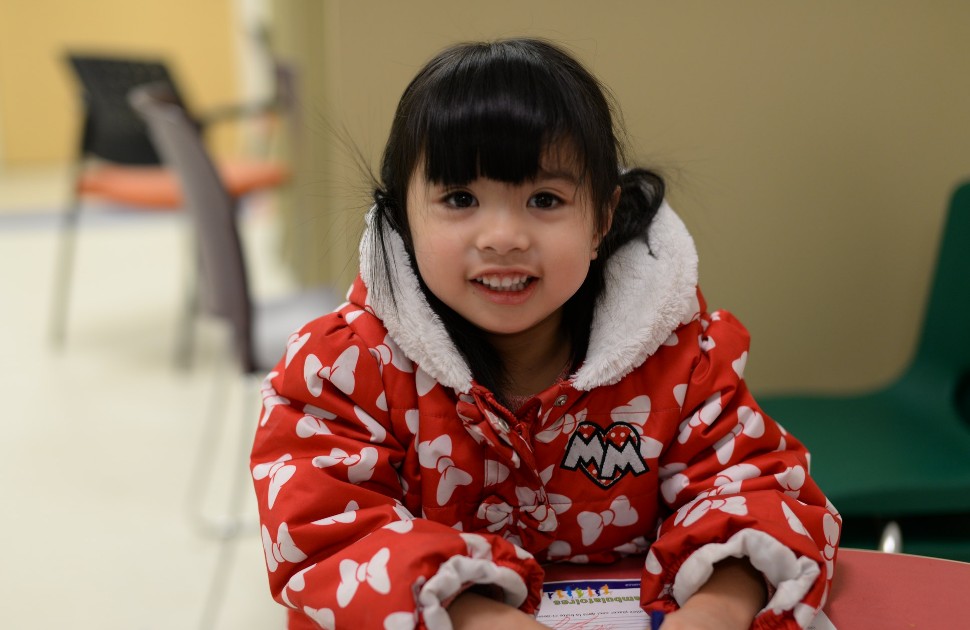|
Being the other one: growing up with a brother or sister who has special needs / Strohm, Kate.
|
|
Boston, MA: Shambhala, 2005.
This book reveals the difficulties faced by siblings at all stages of life, from early childhood through adulthood, when siblings must often assume responsibility for the care of their disabled brothers and sisters. Though the book looks honestly at the many challenges that siblings face, it is full of encouragement and practical strategies.
|
| Brothers and sisters of children with disabilities / Burke, Peter. |
|
London: Jessica Kingley, 2003.
Examining the overlooked subject of non-disabled siblings in families where there is a disabled child, this book details the experiences of these children and explores what it means to them to have a disabled brother or sister. Through family interviews and one-to-one meetings, the author records siblings' views on issues ranging from the everyday social restrictions on their lives, the discrimination they face at school, through to their concerns about the future.
|
| Day by day: children tell their journeys of faith and determination living with a sick brother or sister / Frisbee, Christine. |
|
New York: Frisbee Foundation Publishing, 2008.
The purpose of this book is to bring understanding and hope to families with a seriously ill child, as well as to educate others about how to take a difficult situation and use it to make you stronger and wiser.
|
The empty place: a child's guide through grief / Temes, Roberta.
|
|
Far Hills, NJ: Small Horizons, 1992.
When a nine-year-old boy's beloved big sister dies, he is confused, angry, and fearful. For the first time, he must face the finality of death and the pain of loss. His parents, also grieving, seem distant. Written by a psychologist, this book is an important asset for any counselor, library, or parent trying to help a child cope with death.
|
| Hey! What about me? / Ganz, Pam. |
|
Hoffman Estates, IL: SuperSibs!, 2003.
A personal journal for teens and young adults whose brother or sister has cancer.
|
| Hi, my name is Jack: a book for the healthy siblings of chronically ill children / Beall-Sullivan, Christina. |
|
Park City, UT: Bopar Books, 2005.
Eight-year-old Jack tells what it is like to have a sister who is chronically ill. Appropriate for ages 4- 8 years.
|
|
Keep the siblings, lose the rivalry: 10 steps to turn your kids into teammates / Cartmell, Todd.
|
|
Grand Rapids, MI: Zondervan, 2003.
This guide uses role-plays, Scripture references, and interactive discussion questions to improve children's skills at handling sibling rivalry.
|
| My brother Charlie / Robinson Peete, Holly; Peete, Ryan. |
|
Scholastic Press, 2010.
Callie is very proud of her brother Charlie. He's good at so many things -- swimming, playing the piano, running fast. And Charlie has a special way with animals, especially their dog, Harriet. But sometimes Charlie gets very quiet. His words get locked inside him, and he seems far away. Then, when Callie and Charlie start to play, Charlie is back to laughing, holding hands, having fun. Charlie is like any other boy, and he has autism. For ages 4-8.
|
| My sister Rose has diabetes / Beatty, Monica Driscoll. |
|
Santa Fe, NM: Health Press, 1997.
This story describes the impact of diabetes on a ten year old girl and on her older brother. Appropriate for ages 5-10 years.
|
|
Siblings: you're stuck with each other, so stick together / Crist, James J.; Elizabeth Verdick; Steve Mark.
|
|
Minneapolis, MN: Free Spirit Pub., 2010.
Full-color illustrations and humorous, kid-friendly text teach kids how to cope with problems of fairness, jealousy, conflict, tattling, privacy, and other things that can make having siblings so difficult. Kids learn how to cope with a new baby in the home and how to handle special situations such as siblings with special needs, step-siblings, and adopted siblings.
|
| Special siblings: growing up with someone with a disability / McHugh, Mary. |
|
Baltimore: Paul H. Brookes, 2002.
Weaving a lifetime of memories and reflections with relevant research and interviews with more than 100 other siblings and experts, McHugh explores a spectrum of feelings, from anger and guilt to love and pride, and helps readers understand the issues siblings may encounter.
|
| Turbo Max: a story for siblings of children with Bipolar Disorder / Anglada, Tracy. |
|
Murdock, FL: BPChildren, 2002.
Rick is advised by his parents and doctors to write his feelings about what it’s like having a sister with bipolar disease. He and his sister spend a lot of time working on his car, Turbo Max, but sometimes there is a lot of frustration. Appropriate for Ages: 8-12 years.
|
|
Upside down and backwards: a sibling's journey through childhood cancer / Greves, Julie.
|
|
Washington, DC: Magination Press, 2014.
Follows eighth-grader Bryce as he learns about his sister's cancer and watches his family's focus turn toward her, leaving him feeling left out, jealous, worried, afraid, and confused about the disease.
|
|
When Molly was in the hospital / Duncan Debbie.
|
|
Windsor CA: Rayve Productions Inc., 1994.
Anna’s little sister Molly needs to go to the hospital for an operation. In this sensitive and emotional story, Anna tells about the experience from her point of view. Appropriate for Ages: 4-8 years.
|
| When your brother or sister has cancer: a guide for teens. |
|
National Cancer Institute, 2005.
In this booklet you will hear from teens who have a brother or sister with cancer, find out what has helped them, get ideas about people to talk with when you're upset or feel all alone and learn a little about cancer and how it's treated.
|





